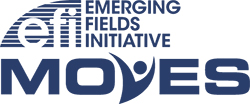EFI Moves
Individualized Diagnosis and Treatment in Motion

Project leader: ,
Project members: , , , , , , , , , , , , , ,
Start date: 1. January 2014
End date: 31. December 2016
Funding source: FAU Funds
Website: http://www.efi.uni-erlangen.org/projects/efimoves/
Abstract
One of the most urgent needs for the public health care system is the missing objective and individualized efficacy assessment of medical diagnostics and intervention in prevention, early detection, and treatment of diseases. Present technology of sensor based motion analysis allows individualized and mobile assessment of mobility and activity-of-daily-living representing a very important readout for treatment efficacy for the most frequent diseases. The "diagnose related group" - DRG system in Germany compensates medical care solely based on diagnostic classification and medical procedures. Short- and long-term efficacy of any medical intervention is not included in the underlying reimbursement categories, thereby limiting the attribution of socioeconomic expenditure. Also, different sectors of health care (i.e. outpatient units, hospitals, etc.) further impede sustainable and objective assessment of the efficacy of medical diagnostics and therapeutic measures to improve quality-of-life.
The vision of our EFIMoves - EFI project is to combine modern and multimodal medical technological approaches for a diagnostic workup enabling a qualitative and quantitative assessment of impaired movement allowing a sustainable benchmarking of medical treatment. Mobile and integrated sensor based movement analysis provides a cost-effective, easy applicable, and individualized mobile assessment of any given movement. This sensor-based movement detection will be mirrored by modern high-tech diagnostic approaches using imaging modalities, MRI, biomechanical movement analysis.
This proposed concept has the potential to be applicable to any disorder affecting movement and mobility, however, as a proof-of-principle, the present project will focus on
- neuronal (e.g. Parkinson’s disease - PD) and
- musculoskeletal (e.g. Osteoarthritis - OA) related movement disorders.







